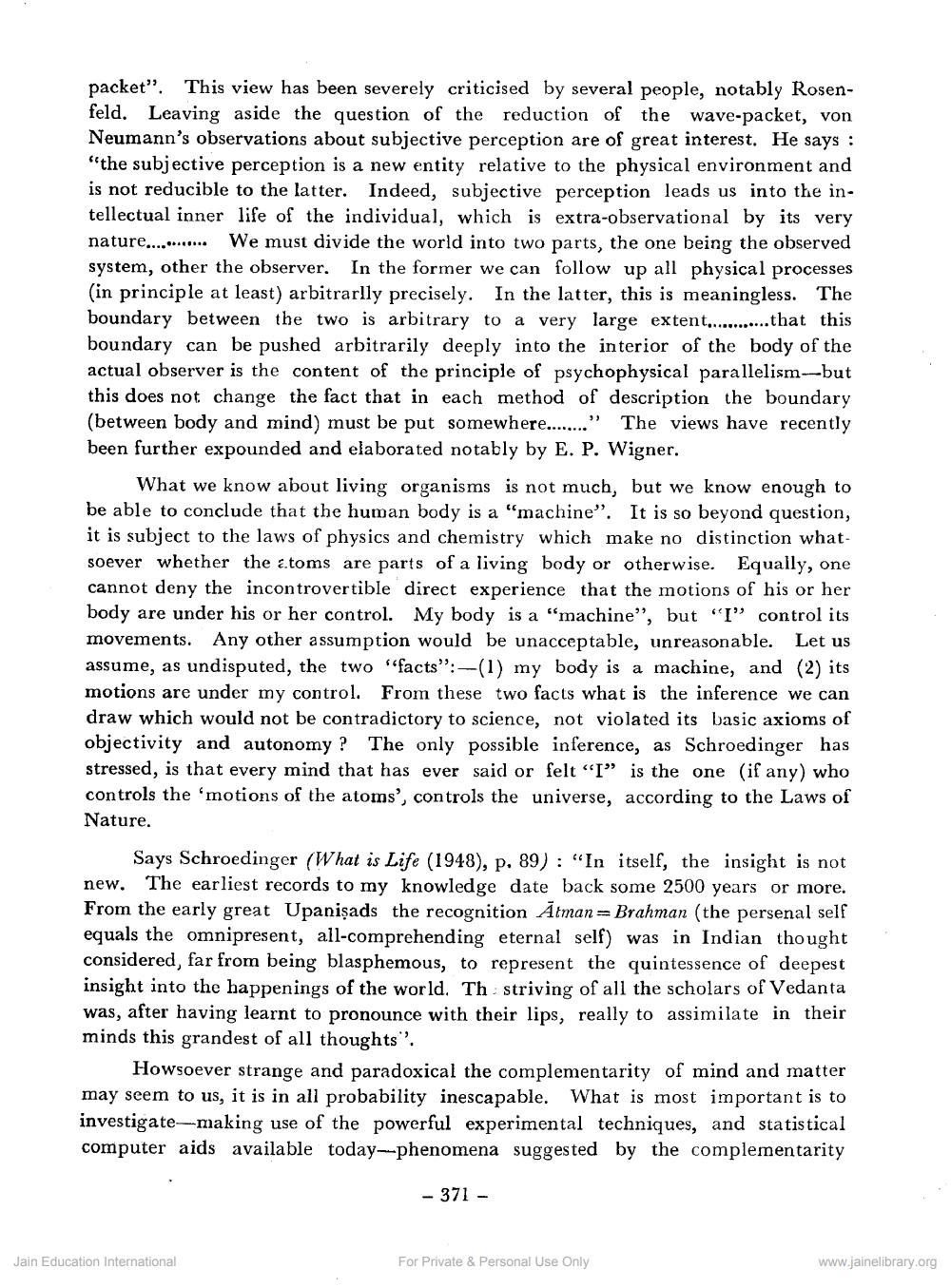Book Title: Reality and Physics Some Aspects Author(s): D S Kothari Publisher: Z_Kailashchandra_Shastri_Abhinandan_Granth_012048.pdf View full book textPage 7
________________ packet". This view has been severely criticised by several people, notably Rosenfeld. Leaving aside the question of the reduction of the wave-packet, von Neumann's observations about subjective perception are of great interest. He says: "the subjective perception is a new entity relative to the physical environment and is not reducible to the latter. Indeed, subjective perception leads us into the intellectual inner life of the individual, which is extra-observational by its very natur............ We must divide the world into two parts, the one being the observed system, other the observer. In the former we can follow up all physical processes (in principle at least) arbitrarlly precisely. In the latter, this is meaningless. The boundary between the two is arbitrary to a very large extent............that this boundary can be pushed arbitrarily deeply into the interior of the body of the actual observer is the content of the principle of psychophysical parallelism-but this does not change the fact that in each method of description the boundary. (between body and mind) must be put somewhere........" The views have recently been further expounded and elaborated notably by E. P. Wigner. What we know about living organisms is not much, but we know enough to be able to conclude that the human body is a "machine". It is so beyond question, it is subject to the laws of physics and chemistry which make no distinction whatsoever whether the atoms are parts of a living body or otherwise. Equally, one cannot deny the incontrovertible direct experience that the motions of his or her body are under his or her control. My body is a "machine", but "I" control its movements. Any other assumption would be unacceptable, unreasonable. Let us assume, as undisputed, the two "facts":-(1) my body is a machine, and (2) its motions are under my control. From these two facts what is the inference we can draw which would not be contradictory to science, not violated its basic axioms of objectivity and autonomy? The only possible inference, as Schroedinger has stressed, is that every mind that has ever said or felt "I" is the one (if any) who controls the 'motions of the atoms', controls the universe, according to the Laws of Nature. Says Schroedinger (What is Life (1948), p. 89): "In itself, the insight is not new. The earliest records to my knowledge date back some 2500 years or more. From the early great Upanisads the recognition Atman Brahman (the persenal self equals the omnipresent, all-comprehending eternal self) was in Indian thought considered, far from being blasphemous, to represent the quintessence of deepest insight into the happenings of the world. Th striving of all the scholars of Vedanta was, after having learnt to pronounce with their lips, really to assimilate in their minds this grandest of all thoughts". Howsoever strange and paradoxical the complementarity of mind and matter may seem to us, it is in all probability inescapable. What is most important is to investigate making use of the powerful experimental techniques, and statistical computer aids available today-phenomena suggested by the complementarity Jain Education International - 371 For Private & Personal Use Only www.jainelibrary.orgPage Navigation
1 ... 5 6 7 8 9 10
